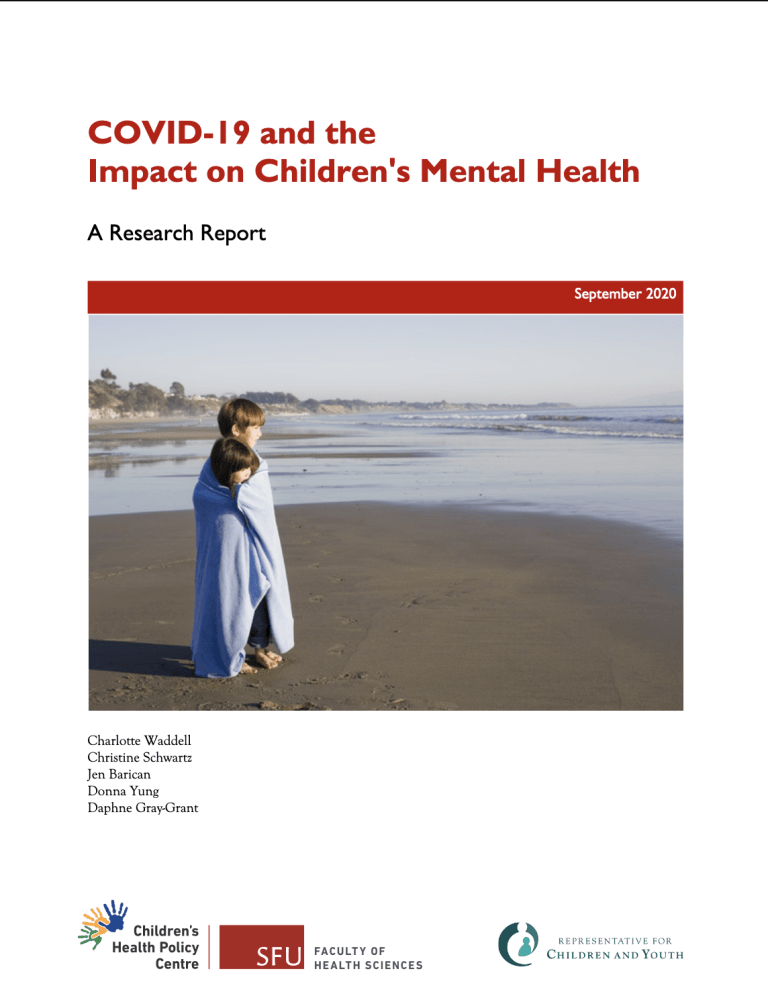4 search results
Ensure effective prevention and treatment services for all children in need
Recommendation 1: Effective children’s mental health services — including both prevention and treatment — must be provided for all those in need. As well, pre-existing service shortfalls must be addressed. Given predictions of as much as tenfold increases in the needs for the most affected children, in the short-term this will require ensuring comprehensive plans, substantially increasing budgets for children’s mental health, protecting these budgets, and ensuring efficient whole-of-government service coordination. While the front-end costs of such investments will be high, the long-term benefits will be high as well — including reducing costs associated with avoidable long-term mental health problems. For children with mild or transient symptoms, effective prevention programs can stop the progression to mental disorders, which often become entrenched and persist into adulthood with ensuing distress and disability; meanwhile, for those with disorders, effective treatments can reduce distress and speed the return to healthy development and functioning.-
Category and theme:
Audience:
Groups affected:
Offer proven children’s mental health interventions
Recommendation 2: Numerous interventions have been tested covering the span of children’s mental health problems. Effective prevention approaches have been delineated for most, and effective treatments have been delineated for all. For the specific problems expected to increase due to COVID-19 — namely childhood anxiety, depression, behavioural problems and posttraumatic stress — there is ample research evidence on effective prevention and treatment options that have been evaluated using rigorous measures in randomized controlled trials (RCTs) with children. (Although RCTs provide the best evidence on intervention effectiveness, they also have important limitations, including underrepresenting Indigenous Peoples as well as Indigenous Methods and perspectives.) […] As well, interventions like cognitive-behavioural therapy and parent training can be culturally enriched and adapted with input, for example, from Indigenous communities. At the same time, ineffective or unproven options should not be supported during COVID-19, or at any time.-
Category and theme:
Audience:
Groups affected:
Address underlying social disparities and build resilience
Recommendation 3: Another crucial step is to address the social disparities that amplify the risks for harm following an event such as COVID-19. Particular attention should be paid to children who are already disadvantaged. The pandemic can be the instigation to launch initiatives such as: ensuring that no children are living in precarious socioeconomic circumstances; augmenting support services for children in need; reducing the number of avoidable adversities that children face in addition to COVID-19, including addressing racism; and rectifying inadequate living conditions in many Indigenous communities, as well as raising the levels of funding and support for child health, social and educational programs to achieve parity with non Indigenous communities. Related to this, approaches that strengthen families and communities can promote resilience when children do have to face adversities. Given the likelihood that the impact of COVID-19 may be enduring, building these foundations for resilience are crucial — through initiatives that reduce disparities and ensure that all BC children can flourish.-
Category and theme:
Audience:
Track collective progress
Recommendation 4: Finally, it is important to establish ongoing systems for monitoring mental health needs and outcomes for all children — to accurately depict the needs over time and to inform the evaluation of initiatives designed to meet these needs. Such efforts should focus first on problems that are expected to increase in the short term including anxiety, depression, behaviour problems and posttraumatic stress — in addition to tracking progress at addressing underlying issues such as socioeconomic disparities. Monitoring could take the form of pragmatic yet robust population-based short surveys conducted in representative samples of children. Our review also suggests that many children who experience mental health problems after disasters eventually recover. So tracking outcomes is also a way of measuring success.-
Category and theme:
Audience:
Groups affected:
